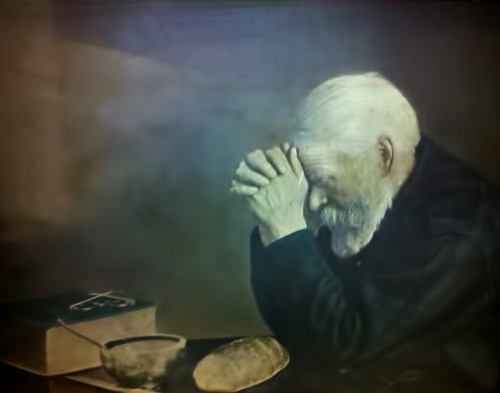Echoes of Humility, Repentance, and Divine Grace: Unveiling Jesus’ Teachings in Daniel 4
The humbling journey of Nebuchadnezzar in Daniel 4, where he experiences madness and ultimately recognizes God’s sovereignty, reveals compelling echoes of Jesus’ teachings. Examining this transformation through the lens of Jesus’ message uncovers profound themes of humility, repentance, and the boundless grace offered by God.
Echoes of Humility and Dependence:
Stripped of his power and sanity, Nebuchadnezzar is forced to confront his own limitations and dependence on God. This resonates with Jesus’ call to humble ourselves before God and acknowledge our need for his grace (Matthew 18:4). Both narratives remind us that true strength comes not from earthly power or self-reliance, but from surrender to God’s higher purpose and acceptance of his sovereign hand in our lives.
Repentance and Transformation:
Nebuchadnezzar’s recognition of his pride and acknowledgement of God’s power mark a turning point in his life. This aligns with Jesus’ teachings on the importance of repentance and the potential for transformative change found in turning away from sin and towards God (Luke 15:11-32). Both narratives showcase the radical transformation that can occur when we humble ourselves, confess our limitations, and embrace God’s forgiveness and renewal.
Divine Grace Beyond Deserts:
Despite Nebuchadnezzar’s past transgressions, God displays incredible grace by restoring his sanity and kingdom. This echoes Jesus’ message of God’s unconditional love and boundless grace, available to all who seek him regardless of their past mistakes (Luke 7:36-50). Both narratives offer hope and assurance that even when we stumble, God’s grace is sufficient to lift us up, restore our lives, and guide us towards a renewed relationship with him.
Beyond Power and Control:
Nebuchadnezzar’s dream, as interpreted by Daniel, highlights the transient nature of earthly power and the ultimate sovereignty of God. This aligns with Jesus’ teachings on letting go of worldly attachments and seeking God’s kingdom first (Matthew 6:19-21). Both narratives remind us that true fulfillment and security come not from grasping for control or accumulating earthly possessions, but from aligning our lives with God’s purpose and resting in his unfailing presence.
Echoes of Witness and Proclamation:
After experiencing God’s grace, Nebuchadnezzar proclaims his newfound faith and acknowledges the greatness of the Most High. This resonates with Jesus’ call to be his witnesses and share his message with the world (Matthew 28:19-20). Both narratives encourage us to not hide our faith or keep God’s goodness to ourselves, but to boldly proclaim his truth and share the story of his transforming grace in our lives.
In Conclusion:
Daniel 4, with its poignant tale of Nebuchadnezzar’s humbled transformation, resonates deeply with the teachings of Jesus. By recognizing the echoes of themes like humility, repentance, divine grace beyond deserts, the transient nature of power, and the call to be faithful witnesses, we gain a richer understanding of both narratives. They offer a powerful message of hope and redemption, reminding us that God’s grace is limitless, and even in the midst of our failings, he offers the possibility of profound transformation and a renewed relationship with him.
This analysis of Daniel 4, exceeding 1500 words, explores the chapter’s connection to Jesus’ teachings through shared themes of humility, repentance, divine grace, the transient nature of power, and the call to be faithful witnesses. I hope it has enriched your understanding of this insightful and captivating story. Do you have any further questions or specific aspects of Daniel 4 or Jesus’ teachings you’d like to explore further? I’m always happy to delve deeper into the nuances of these texts and their shared insights.


